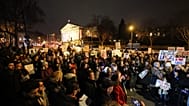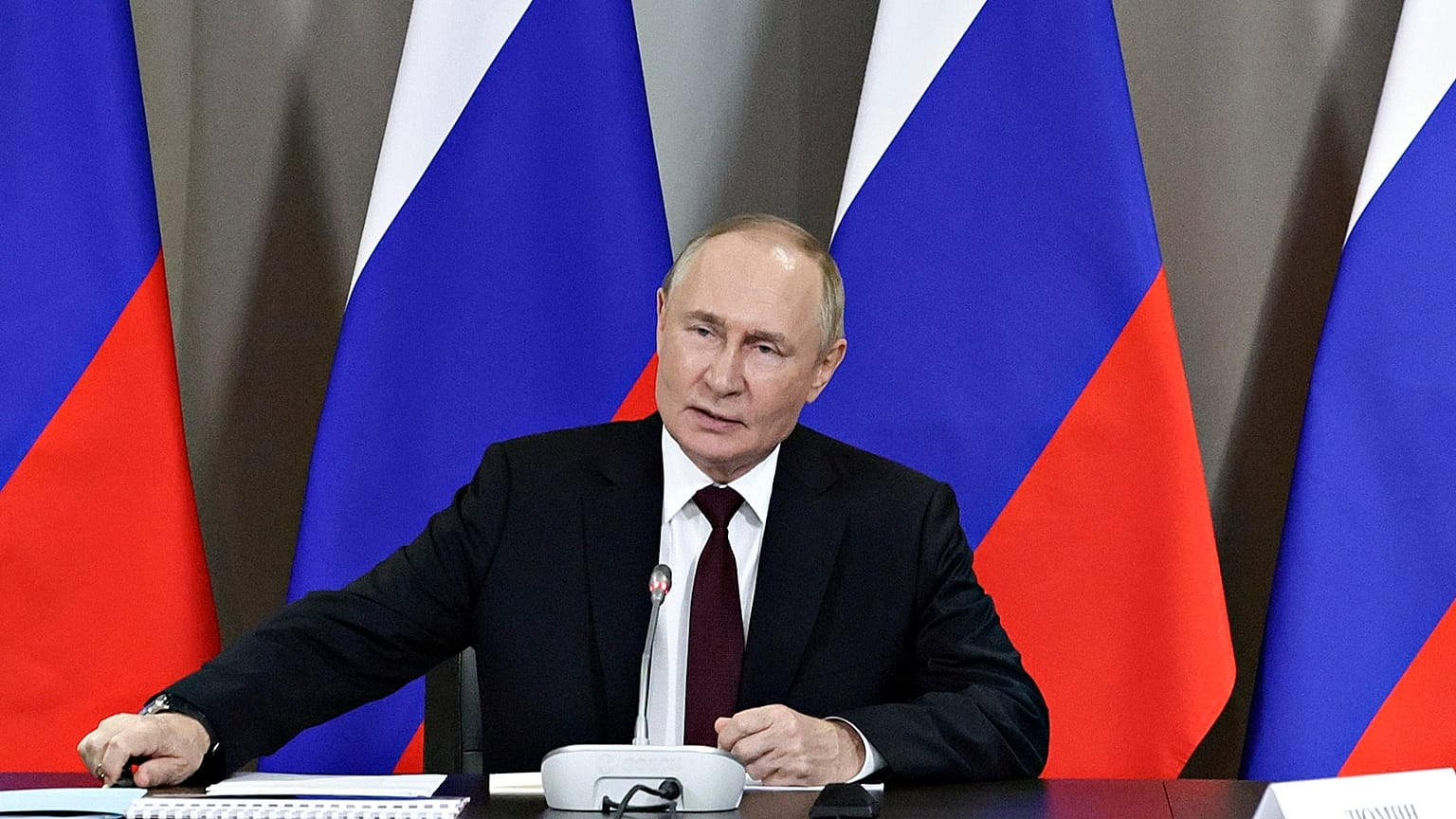The new package of EU sanctions comes amid intense pressure from Donald Trump to end all purchases of Russian energy.
The European Commission has unveiled a fresh round of sanctions on Russia just as the country intensifies its barrage of drones and missiles against Ukraine, hitting the bloc's own delegation, and Vladimir Putin ignores calls to sit at the negotiating table.
The proposal, presented on Friday by President Ursula von der Leyen, targets banks, 118 vessels from the "shadow fleet" and, for the first time, the cryptocurrency platforms that Moscow uses to launder transactions in the global financial market.
If approved by member states, it will mark the 19th package of sanctions since February 2022. Discussions among ambassadors are already underway under a sense of urgency triggered by recent violations of Polish and Romanian airspace.
"Over the past month, Russia has shown the full extent of its contempt for diplomacy and international law," von der Leyen said in a video message.
"We will continue to use all the tools at our disposal to bring this brutal war to an end."
Most notably, the plan foresees an accelerated phase-out of EU imports of Russian fossil fuels, which last year amounted to an estimated €21.9 billion.
In the spring, Brussels had set forth an ambitious roadmap to eliminate all these purchases by the end of 2027 at the latest.
But in recent weeks, US President Donald Trump has publicly called on Europeans to immediately cut off energy ties with Moscow as a condition for him to impose "major sanctions" on Russia, a crucial step he has so far refused to take.
"The purchase of Russian Oil, by some, has been shocking! It greatly weakens your negotiating position, and bargaining power, over Russia," Trump said on Saturday in what he called an open letter to "all NATO nations and the world".
"Anyway, I am ready to 'go' when you are. Just say when?"
Days later, Trump doubled down on his message during a state visit to the UK.
"I'm willing to do other things, but not when the people that I'm fighting for are buying oil from Russia," Trump said.
In response, the Commission has proposed to end all purchases of Russian liquefied natural gas (LNG) one year earlier, by 1 January 2027, and target refineries, oil traders and petrochemical companies that buy Russian oil in breach of Western sanctions.
Rosneft and Gazprom Neft, two leading providers of Russian oil, would be placed under a "full transaction ban".
"Russia's war economy is sustained by revenues from fossil fuels. We want to cut these revenues," von der Leyen said. "It is time to turn off the tap."
Von der Leyen did not explicitly address the legal exemption that allows Hungary and Slovakia to continue purchases of Russian crude through the Druzhba pipeline.
The Druzhba carve-out has been in place since mid-2022 and has never been revisited.
Since Trump's re-election, Hungary and Slovakia have aligned themselves with the policies of the White House. However, the latest demands from the US president have forced them to acknowledge their longstanding dependency on Moscow.
It's unclear what stance the countries will take towards the Commission's proposal. Both Hungary and Slovakia are known for exerting their veto power to extract concessions.
Besides energy and banking, von der Leyen's plan also envisions new restrictions on exports of dual-use goods and entities outside Russia that help evade sanctions, including some in China, which Brussels considers the "key enabler" of the war.
As widely expected, the 19th package does not feature anything resembling the 50% to 100% tariffs on China as Trump had requested in his open letter to NATO allies.
"Our economic analysis is clear: our sanctions are severely affecting the Russian economy," von der Leyen said in her statement.
"Russia's overheated economy is coming to its limit."
This article has been updated with more information.















